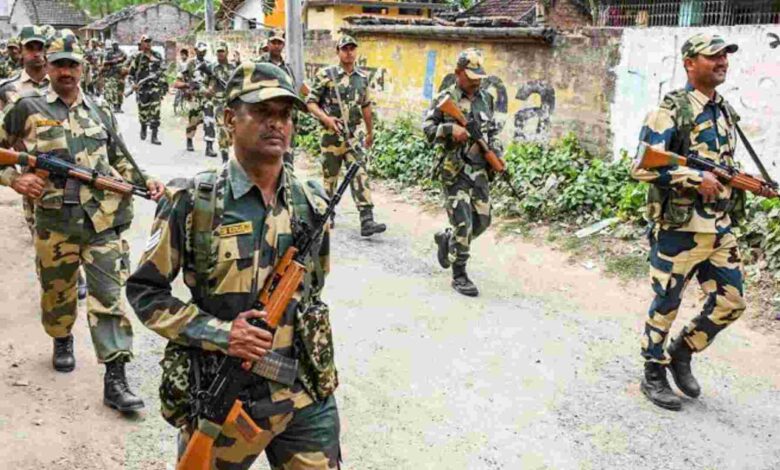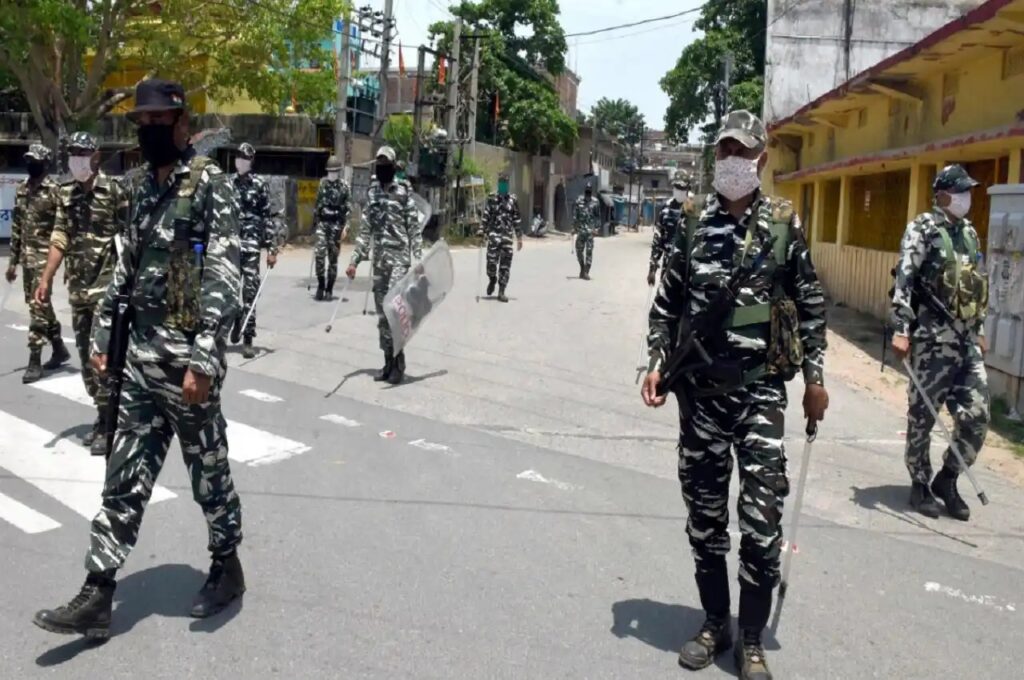Bracing for post-poll violence, CAPF deploys 400 companies in West Bengal until June 19
CAPF companies comprise personnel from various forces, including the CRPF, Border Security Force (BSF), Central Industrial Security Force (CISF), Indo-Tibetan Border Police Force (ITBP), and Sashastra Seema Bal (SSB).

In anticipation of potential post-election violence, around 400 Central Armed Police Force (CAPF) companies, consisting of over 40,000 personnel, will remain stationed in West Bengal until June 19. A significant number of these CAPFs will be made up of the Central Reserve Police Force (CRPF), as authorities are expecting the possibility of unrest following the state elections.

The continued deployment of these 400 CAPF companies in West Bengal serves several purposes. Firstly, it aims to establish control over the area, ensuring a visible security presence. Secondly, it seeks to instill confidence among citizens, assuring them of safety and order. Lastly, it aims to uphold law and order and maintain a peaceful environment.
Strategic Deployment of CAPF: Ensuring Security and Confidence in West Bengal Elections
These CAPF companies comprise personnel from various forces, including the CRPF, Border Security Force (BSF), Central Industrial Security Force (CISF), Indo-Tibetan Border Police Force (ITBP), and Sashastra Seema Bal (SSB).
The decision to deploy these forces aligns with the objective of conducting free, fair, and peaceful general parliamentary elections in West Bengal. The Centre gradually deployed over 900 companies (90,000 personnel) of CAPF in the state during separate phases.
The Ministry of Home Affairs (MHA) sanctioned this deployment in response to a request from the Election Commission. CAPFs play crucial roles during elections, including area domination, confidence-building measures, poll day-related duties, and security for electronic voting machines (EVMs) and counting centers. This deployment strategy was also implemented during the assembly elections in four other states: Andhra Pradesh, Arunachal Pradesh, Odisha, and Sikkim.
Initially, the Election Commission proposed deploying a maximum of 920 CAPF companies in West Bengal. Additionally, 635 companies were requested for Jammu and Kashmir, which held its first Lok Sabha elections after the revocation of Article 370.
Furthermore, 360 CAPF companies were sought for deployment in Chhattisgarh during the polls: 295 in Bihar; 252 in Uttar Pradesh; 250 each in Andhra Pradesh, Punjab, and Jharkhand; 200 each in Gujarat, Manipur, Rajasthan, and Tamil Nadu; 175 in Odisha; 160 each in Assam and Telangana; 150 in Maharashtra; 113 in Madhya Pradesh; 100 in Tripura; 95 in Haryana; 75 in Arunachal Pradesh; 70 each in Karnataka, Uttarakhand, and Delhi; 66 in Kerala; 57 in Laddakh; 55 in Himachal Pradesh; 48 in Nagaland; 45 in Meghalaya; 17 in Sikkim; 15 in Mizoram; 14 in Dadra and Nagar Haveli; 12 in Goa; 11 in Chandigarh; 10 in Puducherry; five in Andaman and Nicobar; and three in Lakshadweep.
You might also be interested in –Government begins awarding citizenship in West Bengal, Haryana, and Uttarakhand under the CAA



